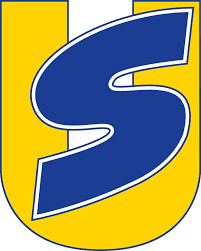By Kelly Daniel
For the Opelika
Observer
Southern Union State Community College held an open house event on April 30, showcasing the free services that their adult education department offers to members of the community with the goal of promoting career success. At the event, instructors set up booths with brochures explaining the various options. Several of the college’s administrators and adult education specialists gave presentations on adult education topics to the audience, which filled up the seating in the student union building.
Derika Griffin, who serves as director of the adult education department at Southern Union State Community College, shared her vision for the Adult Education Program in an email conversation about the program’s goals.
“I want the Southern Union Adult Education Program to become the main source of help for individuals who left high school prior to graduation,” Griffin said. “I want us to become the “go to” for our high school counselors and administrators, individuals who just want to do better for themselves and their families, and employers who need their employees to have better basic skills.”
During the open house, Dr. Linda North, who serves Southern Union as the Dean of Academics, asked for every person in attendance to tell others about the adult education program so that instructors can further fill their classrooms and help more people.
“My challenge to you is to tell two people tonight what you heard because there are so many people that do not know, even on our campus here, that we offer English as a Second Language,” North said. “They do not know about the [nontraditional] high school [diploma] option.” The nontraditional diploma gives those who qualify an opportunity to receive a high school diploma from the last high school attended.
A Variety of Courses and Career Paths
With a range of courses in GED preparation, general education, and certifications in multiple in-demand career paths, the courses offered by Southern Union are designed to meet the needs of adult learners, who often have family and work obligations in addition to seeking education. Courses are offered in the morning, afternoon, evening, and even online, to provide the flexibility needed for those who work and have families. Adult education instructors meet each student where they are and provide individualized lesson plans based on each student’s situation.
The adult education program offers GED exams and preparation for the GED, as well as a nontraditional high school diploma option for those who have earned enough high school credits to qualify. The coursework also extends into preparation for specific careers, including machine tech, that includes machine tech, business administration, digital literacy, and healthcare. Adult education students who obtain their GED or diploma can continue to receive the academic support of the adult education department as they begin to earn official credits toward their associate’s degree.
North emphasized the English as a Second Language program as one that has grown significantly in the past few years. Second language learners can begin classes at any time during the year and the ESL/ELL program meets the needs of learners anywhere from the beginner level, in which basic skills can help them to navigate a world in which most signs, brochures and product packages are written in English.
Advanced learners can further hone their fluency and advance their careers through continued practice.
Workforce Development for Today’s Labor Market
In addition to helping individual students to complete their education, the program aims to meet the growing workforce needs in East Alabama communities. Griffin explained the strategy behind the career development programs emphasized by the program.
“According to the most up-to-date labor market information, Lee County’s highest demand occupations include home health aides, registered nurses, medical assistants, nursing assistants, industrial machinery mechanics, laborers and material movers, truck drivers, welders, software application developers, computer user support specialists, medical secretaries, and management analysts,” Griffin said
Griffin emphasized the degree to which helping adults with families to succeed is good for everyone, enabling all members of society to truly thrive and reach their potential, starting with learners and extending to their families.
“From there it becomes a ripple effect,” Griffin said. “When individuals succeed, families succeed, the community succeeds.”
Beyond just impacts on the careers of individuals, families are also affected by adult education. The Coalition on Adult Basic Education states on their website that literacy and career skills are crucial to success in a job market that increasingly requires computer skills and education – www.coabe.org/why-it-matters .
However, disparities are present that hold many people back from reaching their full potential.
According to the National Center for Children in Poverty, many parents with low levels of education face challenges. For example, they may need to work long hours at low paying jobs to put food on the table, which can make it very challenging to help children with school and other areas which are important to child development (http://www.nccp.org/publications/pub_786.html ). Without a strong educational foundation, parents may find it difficult to find the time to help their children with homework and other activities requiring academic skills. (https://www2.ed.gov/about/offices/list/ovae/pi/AdultEd/f14.html).
How to Get Involved
The presenters stressed the importance of raising awareness of the adult education program, as
awareness is necessary for people connect with the courses and services that are right for them. By asking people in one’s life if they are interested in further career training, more people can be served. In addition, Griffin gave some additional ways to help. “We always need event sponsors. Interested individuals can contact our Outreach Coordinator Jan Busby at jbusby@suscc.edu for a sponsorship packet. There’s always an opportunity for professionals to serve as guest speakers and mentors for our Career Pathways program. Interested individuals should contact Ms. June Abercrombie at juneabercrombie@suscc.edu.”

